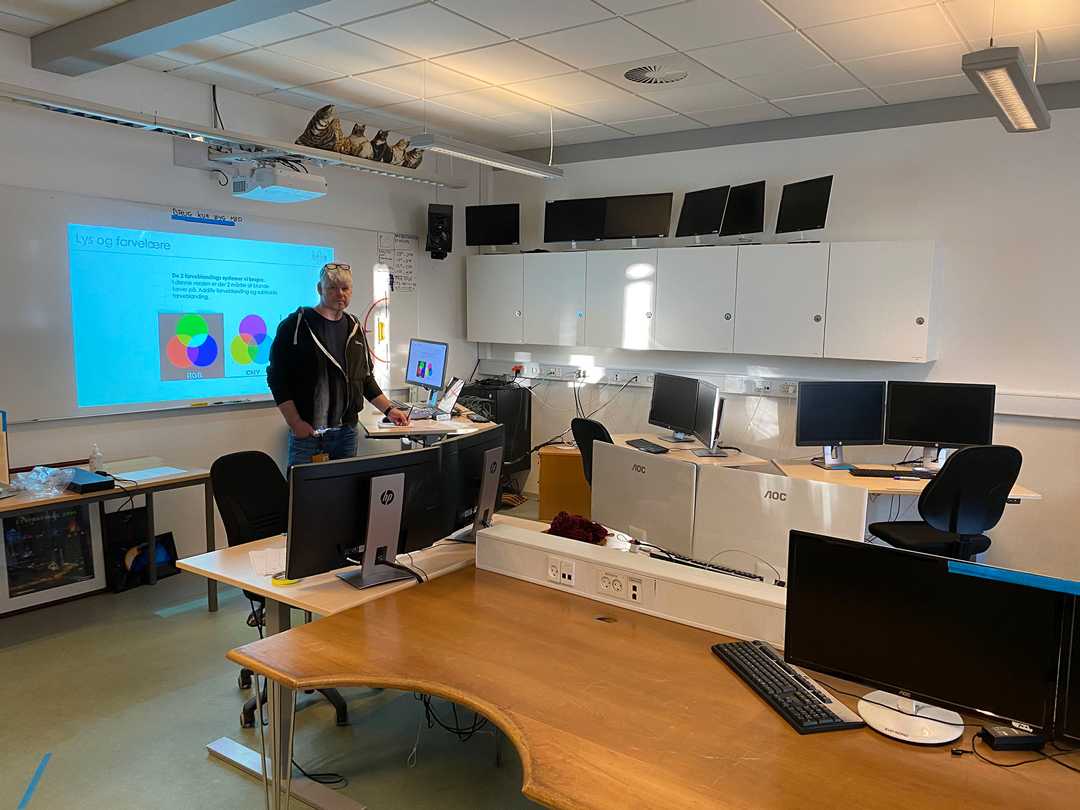Robe scores top marks in event tech course
- Details

The college administration asked if he was interested in applying, and he jumped at the chance as this would enable him to stay home part of the year whilst also retaining the flexibility of touring and lighting shows via his design company, HeCameToEat.
The vocational Event Technicians course allows rental and event production companies, music, and theatre venues, etc. to take on trainee technicians who work at their companies and learn the theoretical, practical and creative skills needed to master the craft over a four-year period, with an emphasis on multi-skilled tasking and being able to juggle many balls in the air simultaneously. They also learn to be part of a hardworking team with long hours, plenty of pressure and little time off.
“It’s very important that the students have a good sense of how to do a proper tour prep, so I’m trying to get up and running with all kinds of showcases in our own working studio,” says Fisker. “Technology and practices are constantly evolving in our industry, so it’s vital to be up-to-date.”
As the coronavirus pandemic unfolded, Denmark was the first in Europe to fully lockdown and all students were sent home mid-March as the teaching shifted to being online.
Fisker’s 10 2020 finalists were allowed back on site in Frederikshavn in early May with extra precautions and social distancing as the Danish government cautiously started re-opening their country, having steered a very effective response to COVID-19.
“One challenge I found with working online is that you can’t see, feel and gauge people’s reactions in the same way when they are behind a webcam, so in a case where someone doesn’t understand what you’re saying . . . it’s a lot harder to instinctively know.”
The final shows must be accompanied by a detailed written report describing all the practices put in place to make it happen – from rigging plots to health and safety risk assessments. Just added are extra COVID-related safety requirements implemented to ensure social distancing and cleaning and sanitization of the gig or event.
When it comes to lighting, they have to demonstrate that they understand how to design and programme a light show, deal with video and AV requirements, timecode, etc. and explain all the technical elements involved in building their show lighting system.
This year, seven of the 10 finalists used Robe moving lights in their show designs - mainly MegaPointes, LEDBeam 150s and Spiiders.
This reflects the very strong presence of Robe in the Danish live show and event market, much of this down to the proactivity of Herning based distributor, Light Partner.
For the shows themselves, fixtures are sourced from the school’s in-house lighting rigs plus assorted rental companies. “Each of these physical lighting design / show projects has a budget, and as part of their understanding of the production process, students also have to demonstrate that the money is efficiently spent,” explains Fisker.
In normal years, the finalist shows - complete with band / artist onstage - will have a ‘family and friends’ performance in the venue, but this year these were cancelled due to the pandemic and instead all the shows were streamed.
(Jim Evans)












